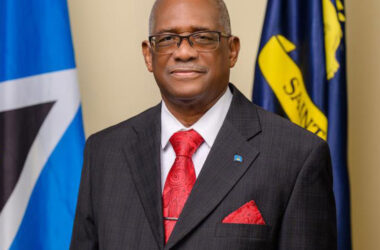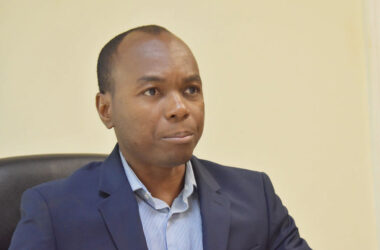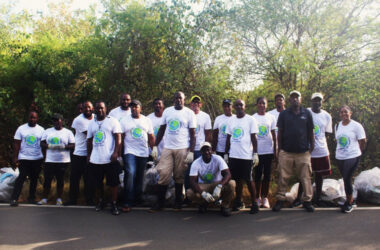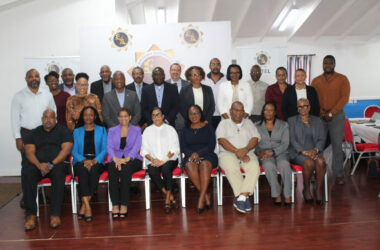THERE is good news and bad news coming from the Infectious Disease Department of the Ministry of Health regarding HIV. Hope, however, abounds as Saint Lucia continues to fight to keep citizens living with the virus under the 1000th mark.
Presently there are 781 persons living with the virus in the country out of which 330 are females, 408 are men and 43 classified as unknown.
The good news or what passed for good news is that the number of new cases of HIV over the past three years (2015, 2016, 2017) have remained about the same, 46, 42 and 44 respectively.
The bad news or what passes for it is that the numbers dying from the disease each year are far less than the numbers being infected each year to the point where the population living with the virus continues to grow.
A look at last year showed that about 13 or 14 persons living with the disease died while 44 new cases were recorded.
Acting Senior Medical Officer for Infectious Diseases, in the Ministry of Health and Wellness, Dr. Gail Gajadhar, speaking to this reporter yesterday, referred to a situation right here in Saint Lucia where persons partake in risky behaviour while ignoring or blissfully unaware of the educational campaigns launched by her Ministry calling on citizens to get tested, stay with one partner and avoid putting themselves at risk of an infection.
“We have a situation where we have educational campaigns but persons are still participating in risky behaviours like having unprotected multiple partners, having unprotected sex even if it is just one time. If those behaviours do not change we will not see an appreciable decrease in the numbers of persons living with HIV,” Gajadhar said.
Such behaviours are driving the Ministry of Health even harder to preach safe sex, encouraged even more by persons coming in to be tested for the virus.
“But the good thing is that we do have persons testing and while we may not like the numbers in the 40s and they are better than what they were before, we are still working on educating persons about the use of protection, one faithful partner and getting tested if you engaged in unprotected intercourse,” she said.
“We get repeat testers, that’s good. If you get tested today that would not account for the immediate three months that have just past. We would recommend that you come back in three months,” Dr.Gajadhar said.
Sadly the new cases of HIV popping up in the country each year is within the 25 – 49 age bracket, the core of the country’s working population, a situation that certainly needs changing.
“And that is why I like to encourage persons to get tested, we have treatment that is available, we know there is not a cure but HIV is manageable and there are a lot of things that can kill you before HIV can.” Gajahdar said.
In its observations regarding new cases the Ministry found that men almost double the infection rate compared to women. Dr.Gajahdar reasoned that is because there are men who have sex with men in the society.
She called on persons living with the virus to come forward to be treated as treatment is free and available. Further, an infected person can get free access to a clinic.
The freebies provided by the State to persons infected with HIV are due primarily from a grant secured by the countries of the Organization of Eastern Caribbean States from a source called The Global Fund for AIDS, or simply the Global Fund.
The grant will expire on 31 March 2019 however the OECS Secretariat is presently in the process of applying for a continuation of that grant so that its work over the past two or so years would not be interrupted.
Through the grant St. Lucia and member OECS States have been able to accomplish several significant goals such as rapid testing to determine HIV and syphilis in someone. Also through the grant, the OECS countries have been able to accomplish an HIV drug resistant study, samples of which will be sent to Martinique. The results would determine whether a change would be needed to the regimes of medication now being offered.
Also, as a result of the grant the OECS has been able to perform a population size estimate study, meaning looking at key populations within the sub-region like transgender, men who have sex with men, transactional sex workers, etc.
Other broad areas supported by the Fund are advocacy, psycho-social support, health system strengthening and more.
















